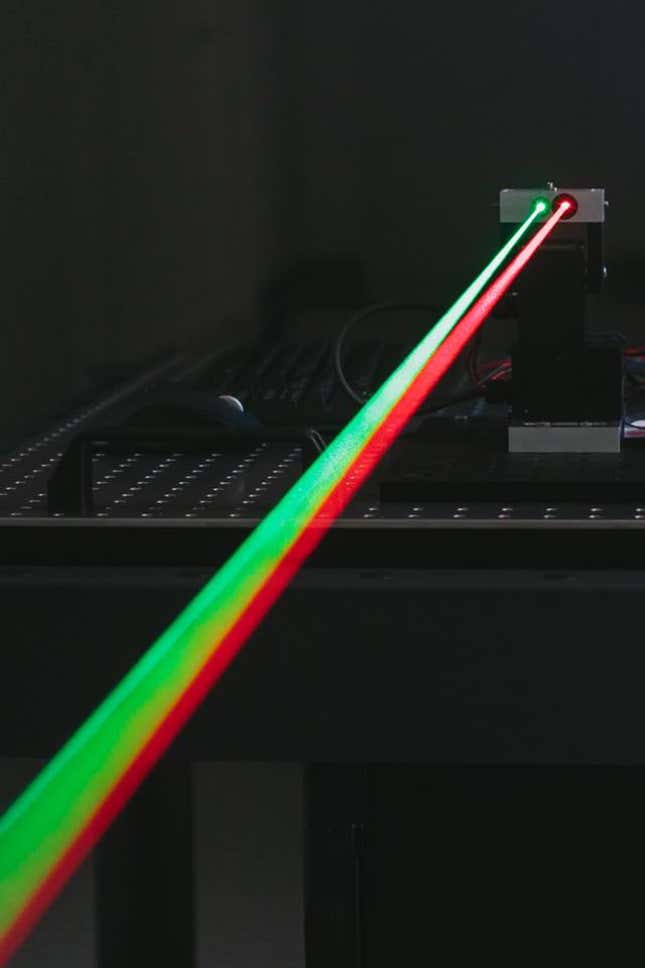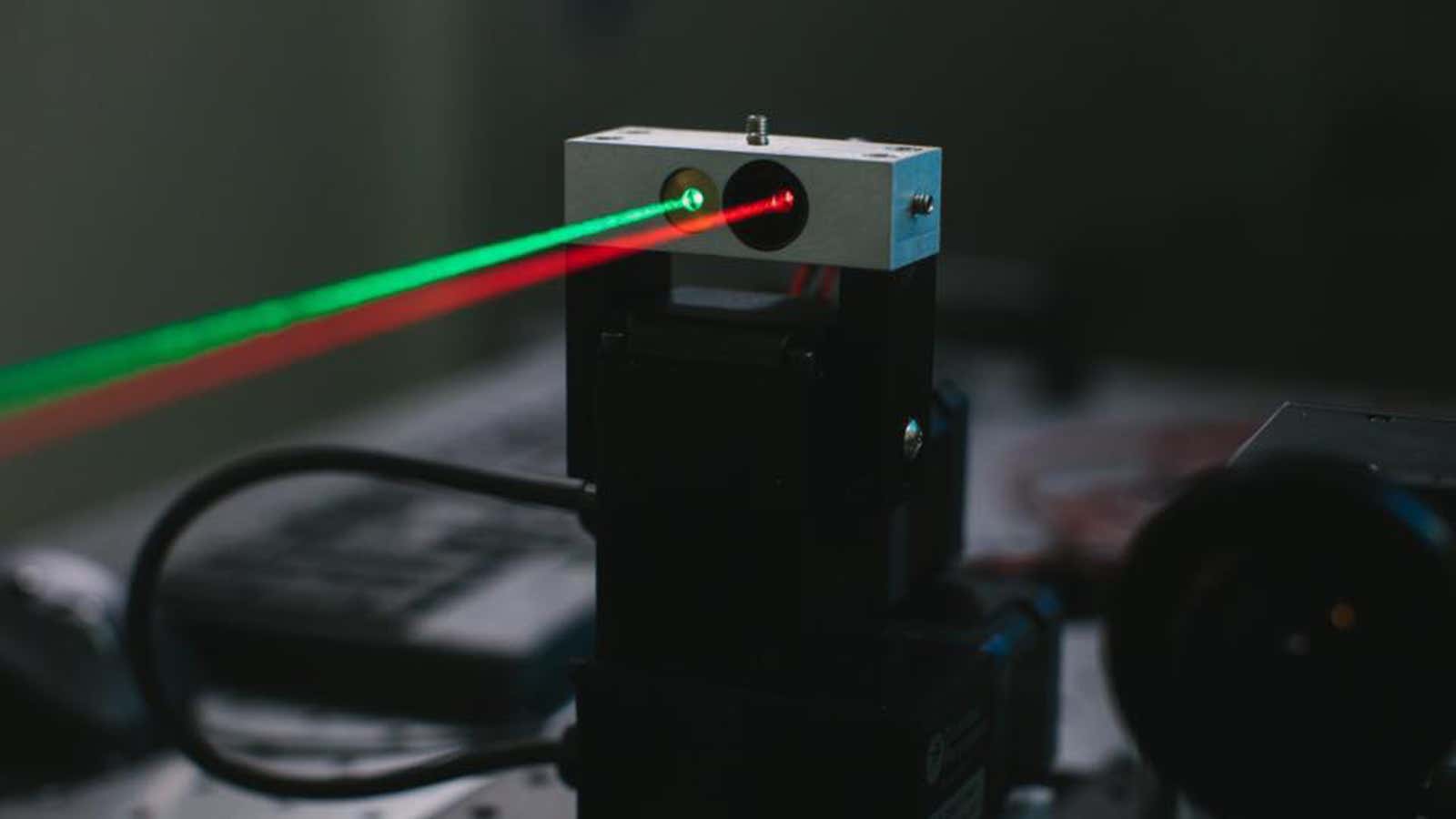This post has been corrected.
Facebook, among other large internet companies, is trying to figure out how to connect the next billion people to the internet.
Without access to expensive wired internet connections, these people largely won’t be getting online from computers, but from mobile devices. The race is on to figure out how to connect those devices from the sky—be it by satellite, weather balloon, or drone.
In a post on Facebook July 1, Mark Zuckerberg confirmed rumors that it is considering a drone and satellite fleet to connect users in developing countries, showing off a “laser communications system” that the company’s Connectivity Lab is working on to beam data from the sky. Zuckerberg said the system “dramatically increase the speed of sending data over long distances.”
The Christmas-colored lasers are still in early development—a representative for Facebook told Quartz the team had no additional information to provide on the project right now. But the project could change how internet is delivered to those who don’t have access to a fixed connection. Combine this laser system with the drone technology the social network is working on, and a picture of a wireless network of internet-connected drones flying overhead starts to emerge.

Drones are probably a cheaper way to beam the web down to people from the sky than the weather balloons that Google is currently experimenting with, but presumably far more annoying. Commercial drones are loud, can only fly for about 30 minutes at a time, and in many countries, need to be controlled by a person who can actually see the drone.
But those rules are changing, at least in the US. Amazon is apparently about a year away from being able to set up an autonomous drone delivery network, so it’s not entirely beyond the realm of possibility that Facebook could do the same for delivering the internet.
Recently, both Facebook and Google dropped their plans to build low-earth orbit satellites to deliver internet to the world. Facebook reportedly canceled its project over concerns it wouldn’t recoup its costs. The project Zuckerberg showed off yesterday, however, is part of Internet.org, the Facebook-led project attempting to bring the web to everyone in the world, so return on investment is less of an issue.
If the drone-powered internet laser program were to succeed, however, Facebook would certainly have quite a few more eyeballs to show its new advertising modules to.
Correction (July 6): An earlier version of this post referred to Internet.org as a charity. It is in fact a project led by Facebook aimed at ”bringing together technology leaders, nonprofits and local communities to connect the two thirds of the world that doesn’t have internet access,” but not a charity.
